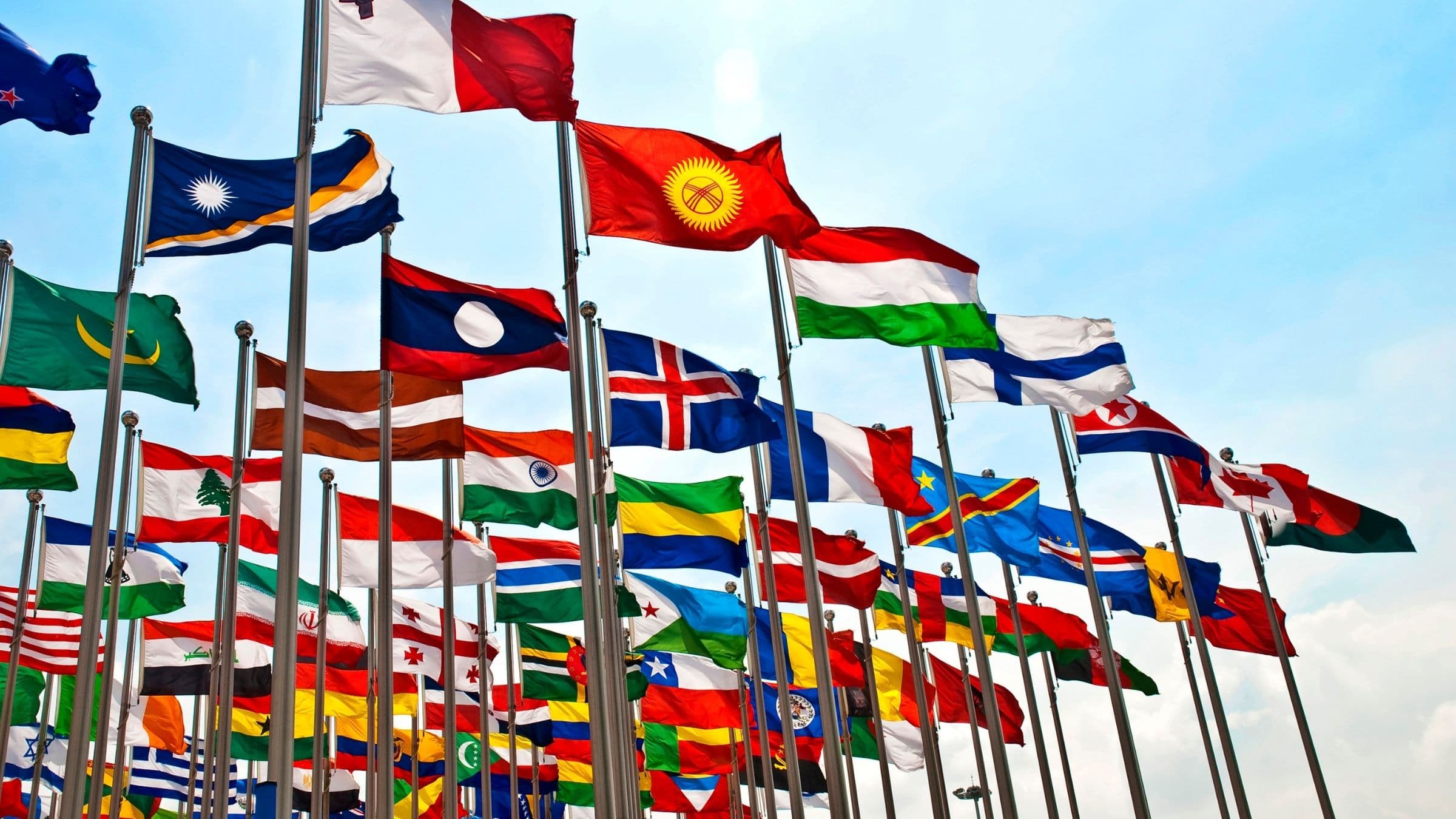
COUNTRY PROFILE
Discover more about the Macau market including overviews about the retail, foodservice, and food-processing sectors. Events, resources, and more are linked throughout the profile.

74.4%
GDP growth for 2023

$187.9 Million
total imports of U.S. agricultural products in 2023

550%
growth in total imports of U.S. agricultural products in 2023
Macau, a special administrative region of China, is forecast to grow at one of the world’s highest gross domestic product (GDP) rate in 2025. The GDP growth for 2023 was 74.4% and should moderate to 27.1% in 2024. The strong growth projections for the coming years hinge on an eventual loosening of China’s COVID-19 stance and a subsequent rebound in foreign visitor arrivals. Risks include the country’s reliance on a single industry—gambling—and on visitor arrivals from the mainland. Worsening U.S.-China ties did not affect the renewal of casino licenses scheduled for the beginning of 2023, including for the three U.S.-owned casinos in the territory. This risk will nevertheless persist as U.S.-China frictions intensify over the next decade, according to Economist Intelligence Unit
Macau, China, benefits from political stability, but its aging population could make increasing demands on government finances in the future. The population of Macau in 2023 was 640,000, about the same size as Portland, Oregon. The median age was 42 years, and about 15% or 104,000 were over the age of 65. The population growth rate was 0.71% in 2023.
As the world’s largest gambling hub, Macau’s economy is heavily dependent on revenues from casinos, making its economic base narrow and prone to shocks. A wealthy and growing population is expected to support discretionary spending. Internet use will continue to rise in the medium term, with 5G already launched in 2023.
USDA’s Foreign Agricultural Service (FAS) Agricultural Trade Office (ATO) in Hong Kong, hereinafter referred to as FAS Post Hong Kong, reports that Macau is located at the entrance of the Pearl River Delta, about 90 miles southeast of Guangzhou, China, and 37 miles southwest of Hong Kong. It covers an area of 12.7 square miles, around one-sixth the size of Washington, D.C.; Formerly a Chinese territory under Portuguese administration, Macau became a Special Administrative Region (SAR) of the People’s Republic of China on December 20, 1999. Pursuant to a 50-year transition period, the Macau SAR (MSAR) maintains a high degree of autonomy in all matters except foreign, defense, and security affairs.
The Macau government plans to expand Macau’s attraction as a tourist and leisure hub including the growth of hotels, family-friendly mega resorts, and accompanying hotel, restaurant and institutional (HRI) outlets. Macau also looks to diversify into a multi-platform entertainment destination. Meetings, Incentives, Conferences, and Exhibitions (MICE) is another area that the Macau government is targeting for long-term development.
Due to production limitations, virtually all of Macau’s food requirements are imported. In 2020, Macau’s total global imports of agricultural, food, and fisheries reached US$1.6 billion. Among them, US$1.4 billion, or 87%, were consumer-oriented agricultural products. Most Macau’s imports were transshipped via Hong Kong as Macau lacks a deep-water port.
U.S. exports of agricultural products leapt up 550% in 2023 to a record high total of US$187.9 million. US$176.6 million of that total, or 94%, was cotton, which they had only begun importing in 2022, at less than US$430 million. China had been the top supplier, but it appears they are sourcing elsewhere, and much of it appears to be re-exported to Indonesia, Pakistan and Sri Lanka who have large fabric making industries. U.S. exports of processed food grew 177% to a record high US$6.1 million.
Top U.S. processed food exports shipped directly to Macau in 2023 included:

$526.9 Million
total retail sales in the packaged food market in 2023

58.7%
growth in retail sales in the packaged food market since 2019

26.9%
expected growth rate in retail sales by 2028
According to Euromonitor, retail sales in the packaged food market in Macau reached US$526.9 million in 2023. That represents a growth rate of 58.7% or US$194.8 million since 2019. By the year 2028, retail sales in the packaged food market in Macau are expected to reach US$769 million, a growth rate of 26.9% and US$162.9 million from 2024.
High growth products in the forecast include:
FAS Post Hong Kong reported that in 2020, retail sales in Macau reached US$5.6 billion, among them US$644 million, or 11%, were goods in supermarkets. That represented a 4.1% growth compared with 2019. “Supermarket/Department Stores” includes sales of supermarkets, convenience stores, and food and beverage sections at department stores. They are the modern grocery outlets that provide consumers with convenient and high-quality options.
In addition to groceries, these stores are offering a more comprehensive shopping experience with increased items of fresh food, bread and pastry, organic options, and hot takeout meals. Royal, San Miu and ParknShop are the three largest supermarket chains in Macau. The largest convenience store chains are 7-Eleven and Circle K. Traditional markets include wet markets and mom-and-pop shops. They are widespread throughout Macau. They are favored for daily, neighborhood shopping primarily especially amongst an older consumer base. Due to size restrictions, many of these stores work with importers to buy smaller batches.
FAS Post Hong Kong reported that high value U.S. exports that have potential in the Macau market include dairy, distilled spirits, seafood, bakery, wine, poultry meat, non-alcoholic beverages, soup and other food preparations, pork and products, and fresh fruit.

255%
increase in visitors since 2020

2,419
restaurant and foodservice facilities in operation in 2019

$1.5 billion
in restaurant receipts in 2019
FAS Post Hong Kong reported that according to the latest statistics, a total of 2,419 restaurant and foodservice facilities were in operation in 2019, an increase of 76 facilities over 2018. The presence of 18 Michelin-starred restaurants in Macau bodes well for the hotel, restaurant, and institutional (HRI) sector. Macanese food, which is a fusion of Portuguese, African, Southeast Asian, and Chinese cooking, is gaining international recognition, as is Macau as a culinary destination following an influx of internationally renowned restaurant brands and celebrity chefs.
The Macau foodservice sector is made up of Chinese restaurants, local-style cafes, western restaurants, Japanese and Korean restaurants, other Asian restaurants, coffee shops, fast food restaurants, bars and lounges, and cooked food stalls. Many of these foodservice outlets are in hotels and casinos. Macau has over 120 hotels and guesthouses, and 39 casinos as well as major Five Star hotels including Altira, Four Seasons Hotel, Sands, Grande Lisboa, the Venetian Macau, Legend Palace, Wynn, Lisboa, Wynn Palace, MGM Macau, MGM Cotai, and the Hotel Okura Macau.
Restaurant receipts amounted to US$1.5 billion (MOP12.24 billion) in 2019, up by 4.1% year-on year, attributable to an increase in the number of foodservice outlets and steadily growing economy. Restaurant expenditures totaled US$1.5 billion (MOP 11.88 billion) and US$533 million (MOP 4.26 billion) of which, or 36%, was spent on purchases of goods.
Macau’s economy is highly dependent on tourism and gaming industries. Worldwide travel restrictions due to the COVID-19 pandemic have slowed down Macau’s economic growth and food demand. The gaming industry’s gross revenue dropped from US$36.6 billion in 2019 to US$7.56 billion in 2020, whereas Macau per capita GDP dropped from US$81,893 in 2019 to US$35,714 in 2020, a decrease of 79% and 56%, respectively. Macau’s imports of consumer-oriented agricultural products were less seriously affected and reached US$1.4 billion in 2020, a decrease of 12% over 2019.
For the first three months of 2021, Macau’s imports of consumer-oriented agricultural products reached US$362 million, an increase of 7.8% over the same period in 2020. The number of visitors has also resumed growth. For the months of February and March 2021, the number of visitors reached over 427,000 and 754,000, an increase of 173% and 255% over 2020. It was expected that Macau’s economy would grow more quickly in the latter half of 2021 when the coronavirus situation further improves. Gross Domestic Product (GDP) dropped 56.3% in 2020 and recovered to growth of 20.4% in 2021. GDP forecast for 2022 is for more growth at 37.6%.
FAS Post Hong Kong reported that the best product prospects in the Macau HRI sector include distilled spirits, spice, coffee, tea, dairy products, fresh fruit, poultry, food preparations, condiment and sauces, beef, fish, chocolate, tree nuts, processed fruit, and snack foods.